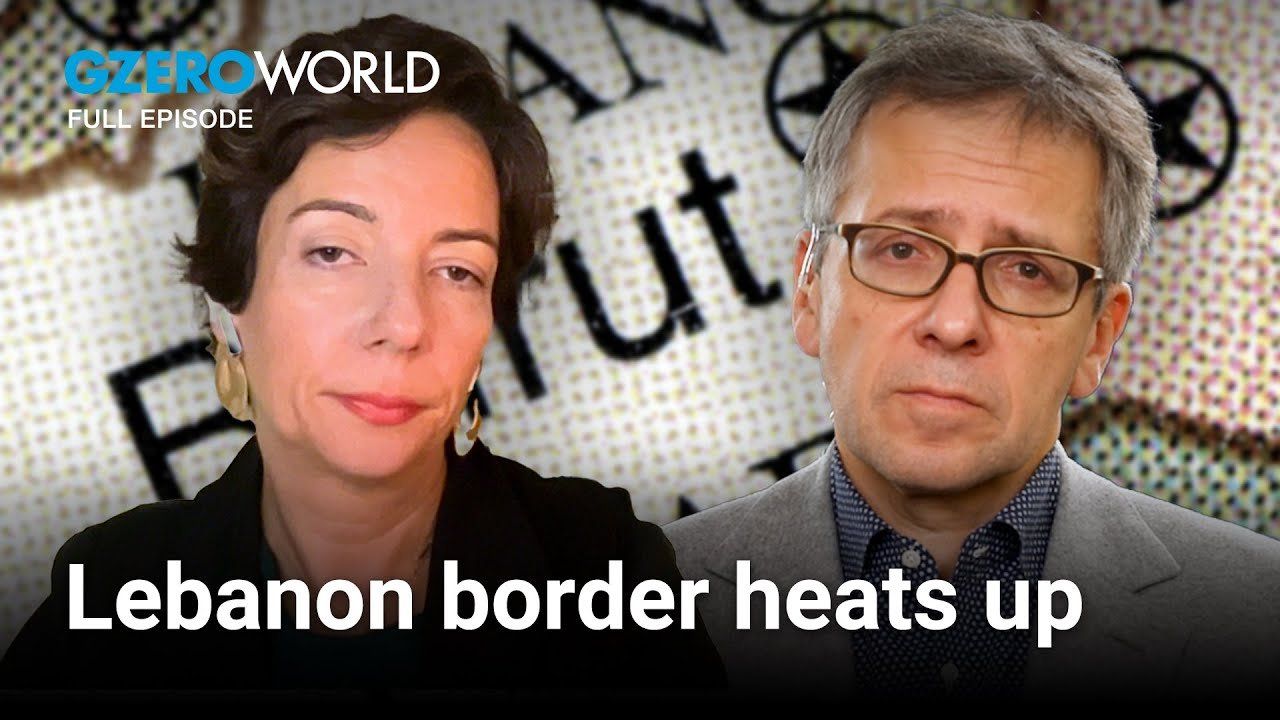
Could clashes with Hezbollah on the Lebanon border lead to a wider war in the Middle East?
How likely is it that the Israel-Hamas war escalates throughout the Middle East? On GZERO World, Ian Bremmer sits with Beirut-based journalist Kim Ghattas for the on-the-ground perspective from across Israel’s northern border with Lebanon. With clashes between Israeli defense forces and Hezbollah, the Iran-backed militant group, increasing on the border and Houthi rebels attacking commercial cargo ships in the Red Sea, tensions in the region are extremely high. Lebanon has a long history of Israeli invasion, which has a huge impact on how people there view the events in Gaza, where over 18,000 people have been killed since October 7th.
“In 1982, Israel invaded Lebanon, an invasion that lasted over two months with a siege of Beirut” Ghattas explains, “We forget, but that was a devastating moment for Lebanon and that’s something the Israelis need to think about today as they pound Gaza.”
Bremmer and Ghattas unpack Lebanon’s history with Israel and how the 1982 invasion led to the formation of Lebanon-based Hezbollah, which holds a lot of power in the country and is even stronger today with around 150,000 missiles and heavy-duty weapons. Like many Lebanese people, Ghattas thinks an Israeli strike against Lebanon is a realistic possibility if IDF-Hezbollah border skirmishes escalate. To prevent that from happening, the Palestinian question will need to be addressed through diplomacy. There’s a pragmatism about what will need to be done to end the war, she emphasizes, but everyone will need to come to the table and make concessions, and that includes the Israelis.
Catch GZERO World with Ian Bremmer every week at gzeromedia.com/gzeroworld or on US public television. Check local listings.
- Israel-Hamas war set to expand & directly involve US ›
- Ian Bremmer: Understanding the Israel-Hamas war ›
- Israel-Hamas war: Biden's second foreign policy crisis ›
- Israel-Hamas War: The race to avert escalation in the Middle East ›
- Top stories of 2023: GZERO World with Ian Bremmer - GZERO Media ›
- Israel-Hamas war: West Bank raid won't derail cease-fire - GZERO Media ›
- Yuval Noah Harari on the perils of viewing Israel-Palestine through the 'victimhood' context - GZERO Media ›
- How October 7th changed Israel and the Middle East - GZERO Media ›